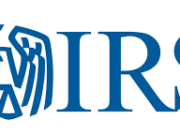The American Civil Liberties Union submitted comments to the IRS on the proposed rules for governing 501(c) political activity earlier today (which can be found at this link), expressing concerns with the proposed rule and urging the agency to adopt a bright-line standard for political activity.
The ACLU notes that the proposed blackout of candidate mentioning content at certain points before elections is absurd:
It’s crucial to note that the ACLU’s website includes literally hundreds of thousands of individual webpages, and the proposed blackout rules would cover vast amounts of content that has absolutely nothing to do even with issue advocacy, let alone partisan politicking. For instance, it could cover copies of publicly filed lawsuits with government defendants, requests under the Freedom of Information Act, any communication addressed to a candidate currently holding elective or appointed office or even 50-state legal surveys mentioning covered officials…
…To put a finer and final point on it, we note that these comments, when posted to the ACLU’s website and otherwise distributed, would likely qualify as CRPA under the proposed rule during the 60/30-day blackout period, including the rolling blackout period before the 2014 election.40 The ACLU would have to either remove this document from its website or otherwise determine a way to account for the expense in creating it as CRPA expenditures.
They also point out:
Despite our serious concerns with the approach in the proposed rule, the Service can and should take resolute steps to address the issues that resulted in the inappropriate targeting of conservative and progressive § 501(c)(4) (and § (c)(3)) groups, and to apply a true bright-line test for political intervention by social welfare groups. Most social welfare organizations—on both the left and right—serve exactly that function as they see it, the promotion of social welfare and community good. Based on their respective visions, they advocate for the powerless and the voiceless. They promote fiscal responsibility and good government. They serve as a check on government overreach, or as a cheerleader for sound public policy.
In many of these functions, social welfare organizations praise or criticize candidates for public office on the issues and they should be able to do so freely, without fear of losing or being denied tax-exempt status, even if doing so could influence a citizen’s vote. Such advocacy is at the heart of our representative democracy. To the extent it influences voting, it does so by promoting an informed citizenry. The current IRS exempt organization review system serves to chill that activity and, despite our concerns with the proposed rule, we appreciate the Service’s demonstrated commitment to reforming the current rule to provide a clearer standard.
The comments are worth reading in their entirety.













